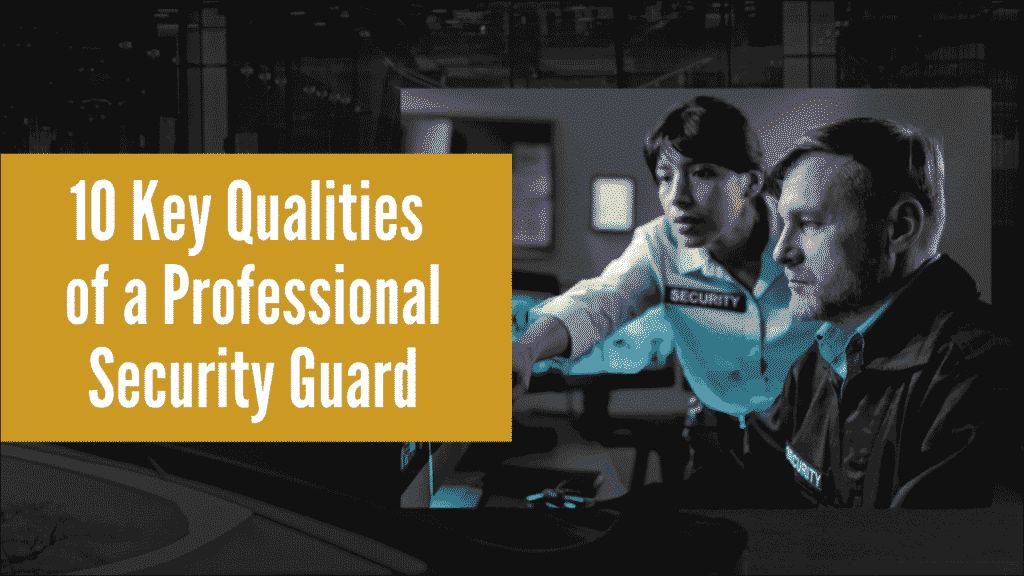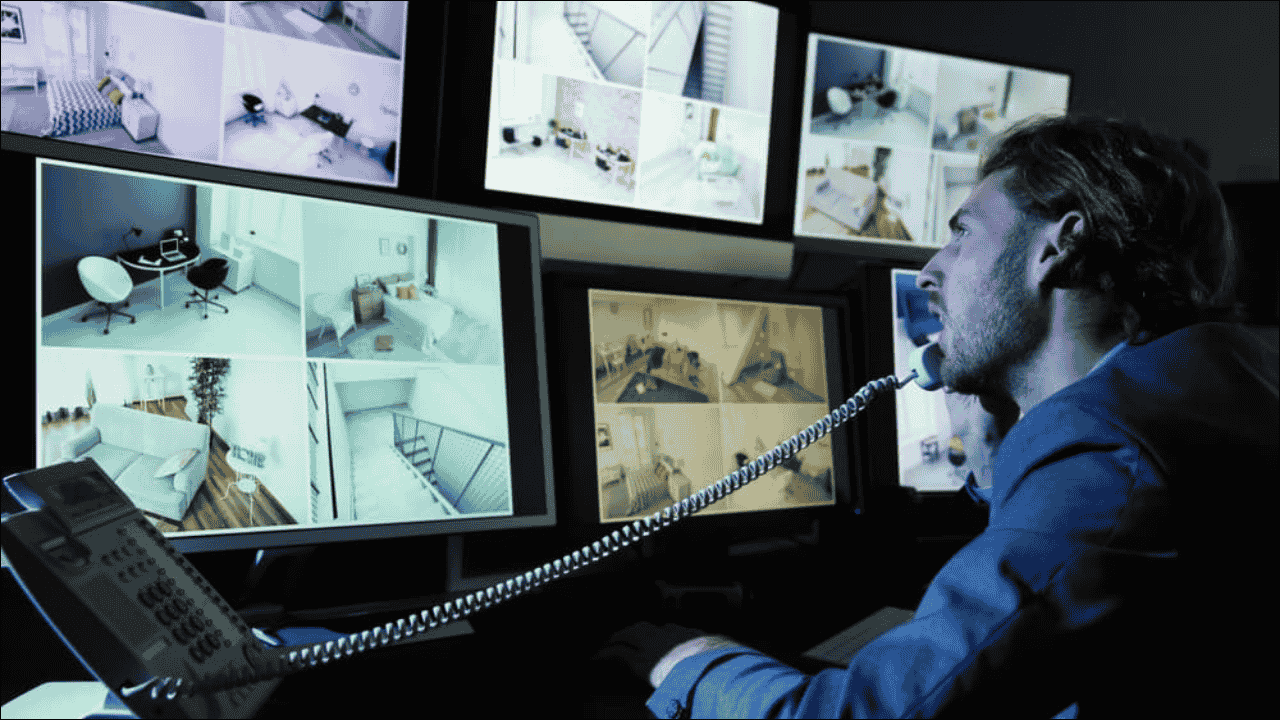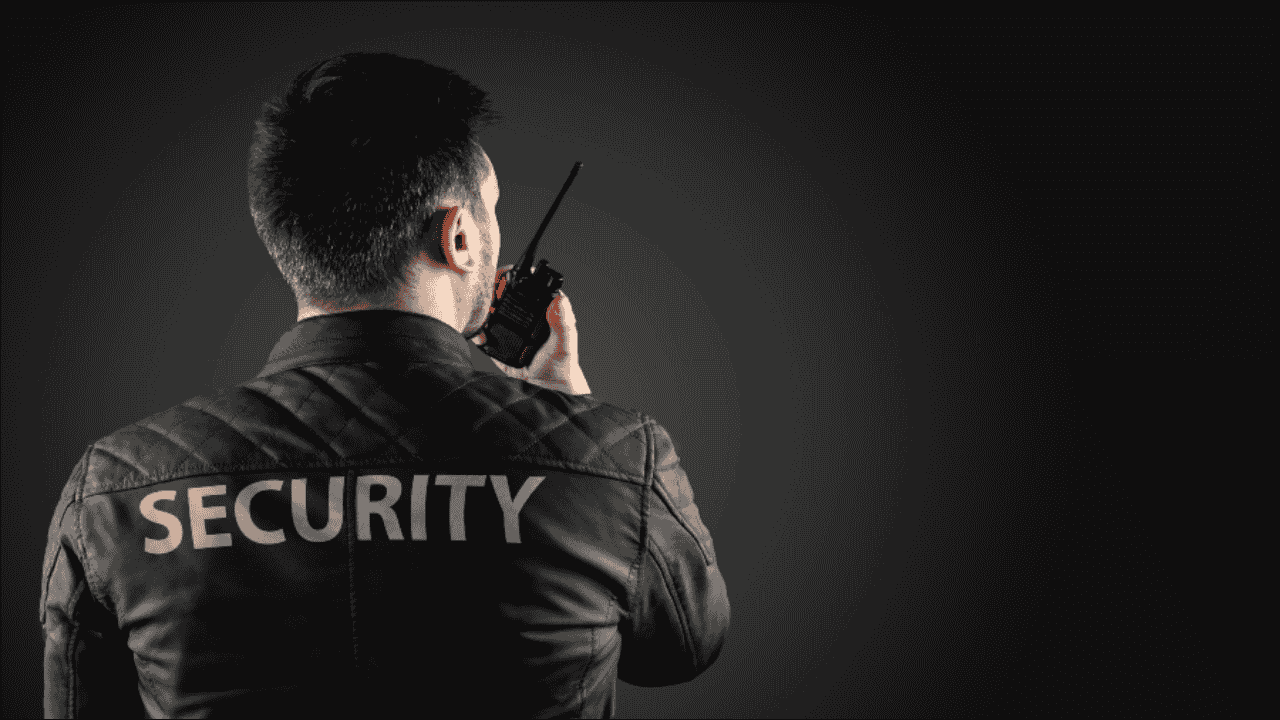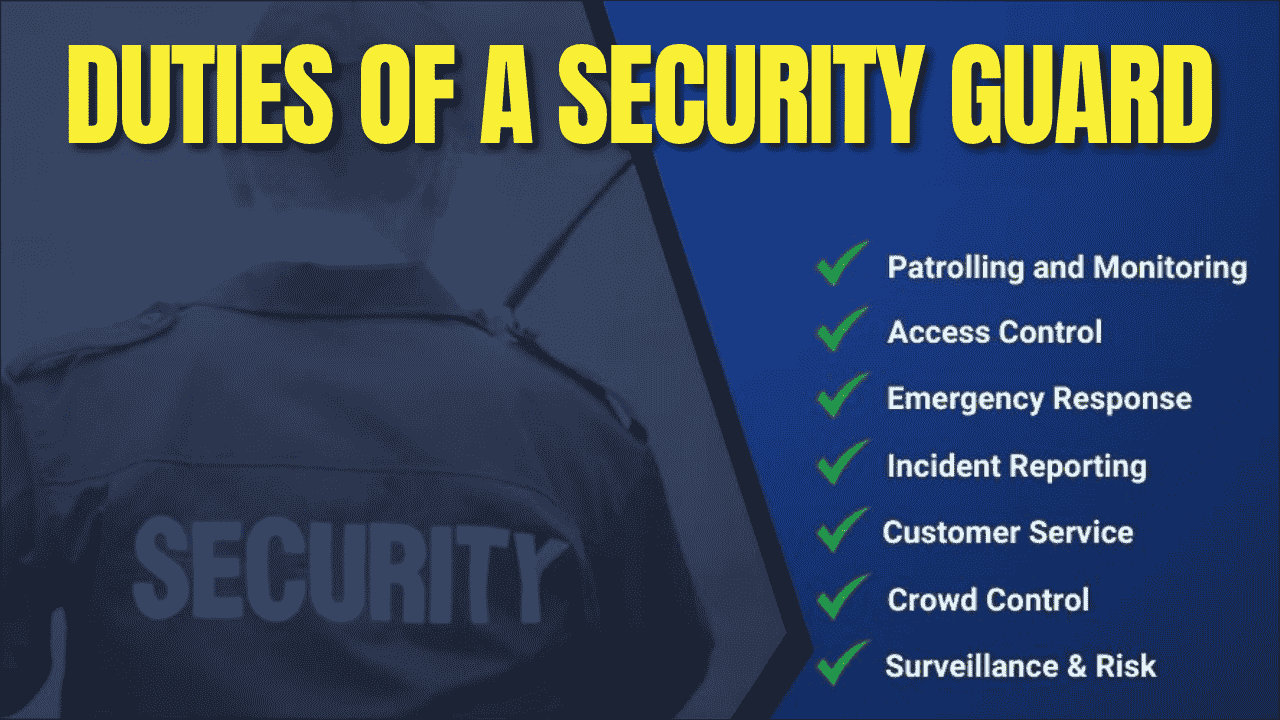
A professional security guard plays a very important role in maintaining safety, preventing crime, and protecting people and property. Security guards work in different areas like schools, offices, malls, hospitals, and public events. Their work needs both mental alertness and physical readiness. A well-trained guard with the right qualities can prevent dangerous situations and ensure peace. The following article explains the ten most important qualities that every professional security guard must have to perform their duties well.
Table of Contents
1. Alertness and Awareness
- Quick reaction to danger
A professional security guard must always be alert and ready to respond to sudden threats. - Focus on the surroundings
Constant attention to people, movement, and environment helps in noticing unusual activities. - Avoiding distractions
Use of mobile phones or long conversations must be limited while on duty. - Checking small details
Unusual noises, broken locks, or unauthorized persons must be observed quickly.
2. Honesty and Integrity
- Trustworthy behaviour
A guard must never misuse their position or engage in dishonest acts. - Proper handling of found items
Any lost or found items should be reported and handed over properly. - Clear record of events
Truthful incident reports improve safety and build trust. - Loyalty to the employer
A security guard must protect the interests of the employer with sincerity.
3. Good Communication Skills
- Clear speaking skills
Guards need to speak clearly to give instructions or explain issues. - Polite tone
Talking respectfully, even in stressful situations, keeps the environment calm. - Listening skills
Guards must listen carefully to understand complaints or problems. - Reporting incidents
Written and spoken reports must be clear, brief, and accurate.
4. Physical Fitness
- Strong physical condition
A guard may need to walk long distances or stand for hours. - Quick movements
Chase or physical action may be required during emergencies. - Good eyesight and hearing
Sensory alertness helps in the early identification of trouble. - Healthy lifestyle
Regular exercise and proper sleep improve performance.
5. Training and Knowledge
- Basic security training
Guards must understand laws, rules, and emergency procedures. - Use of security tools
Handling CCTV, metal detectors, and communication devices is essential. - Knowledge of first aid
Basic medical help in emergencies shows responsibility. - Updating skills
Regular participation in training programs improves efficiency.
6. Strong Observation Skills
- Noticing changes quickly
Changes in behavior, appearance, or surroundings must be noticed. - Identifying threats
Suspicious actions or strangers can be identified early. - Checking vehicles and persons
Careful checking at entry and exit points ensures safety. - Using CCTV effectively
Guards must monitor camera footage with care and attention.
7. Problem-Solving Ability
- Decision-making under pressure
Fast thinking is needed during fire, theft, or violence. - Following the correct steps
Use of proper rules while solving issues is necessary. - A calm mind during trouble
Avoiding panic helps in managing any situation smoothly. - Seeking help when needed
Contacting police, fire services, or medical teams at the right time is important.
8. Professional Appearance
- Wearing a clean uniform
A well-dressed guard looks serious and respected. - Carrying ID and tools
Badge, notebook, flashlight, and whistle must be carried. - Maintaining personal hygiene
Clean appearance reflects discipline. - Standing and moving smartly
Body language must be confident and professional.
9. Respect for Rules and Law
- Understanding of legal limits
Guards must not use more force than necessary. - Following the employer’s policies
Every site has rules that must be respected. - Handling complaints properly
Fair and legal solutions increase public trust. - Working with police and emergency teams
Guards must cooperate with other safety agencies.
10. Teamwork and Responsibility
- Working with other guards
Coordinated work improves coverage and efficiency. - Sharing information
Passing details to the next shift or team members avoids confusion. - Being on time
Reporting for duty without delay shows discipline. - Taking charge in the absence of seniors
Guards must act responsibly if supervisors are not present.
Comparison of Qualities
| Quality | Why It Is Important |
|---|---|
| Alertness | Helps in identifying danger before it turns serious |
| Integrity | Builds trust with employers and the public |
| Communication | Ensures smooth interaction and reporting |
| Fitness | Supports the physical demands of the duty |
| Training | Provides knowledge to manage all types of situations |
| Observation | Improves the ability to prevent and report suspicious activities |
| Problem-Solving | Helps in managing emergencies confidently |
| Appearance | Shows professionalism and earns respect |
| Law Respect | Avoids misuse of power and ensures fairness |
| Teamwork | Makes the security system more effective and organized |
Workplace Examples of Guard Duties
| Workplace | Duties Performed |
|---|---|
| Shopping Mall | Crowd control, bag checks, CCTV monitoring |
| Hospital | Visitor entry management, helping during medical emergencies |
| Office | Access control, ID verification, and maintaining daily visitor records |
| School | Student safety, patrolling, monitoring arrival and departure |
| Construction Site | Preventing theft, checking materials movement, and night patrolling |
Final Thoughts
A professional security guard must have more than just physical presence. Strong character, mental sharpness, and respect for rules are also essential. Training and teamwork help guards perform their duties better and keep everyone safe. Security guards are trusted to protect others, so their qualities must always reflect reliability, alertness, and professionalism.





